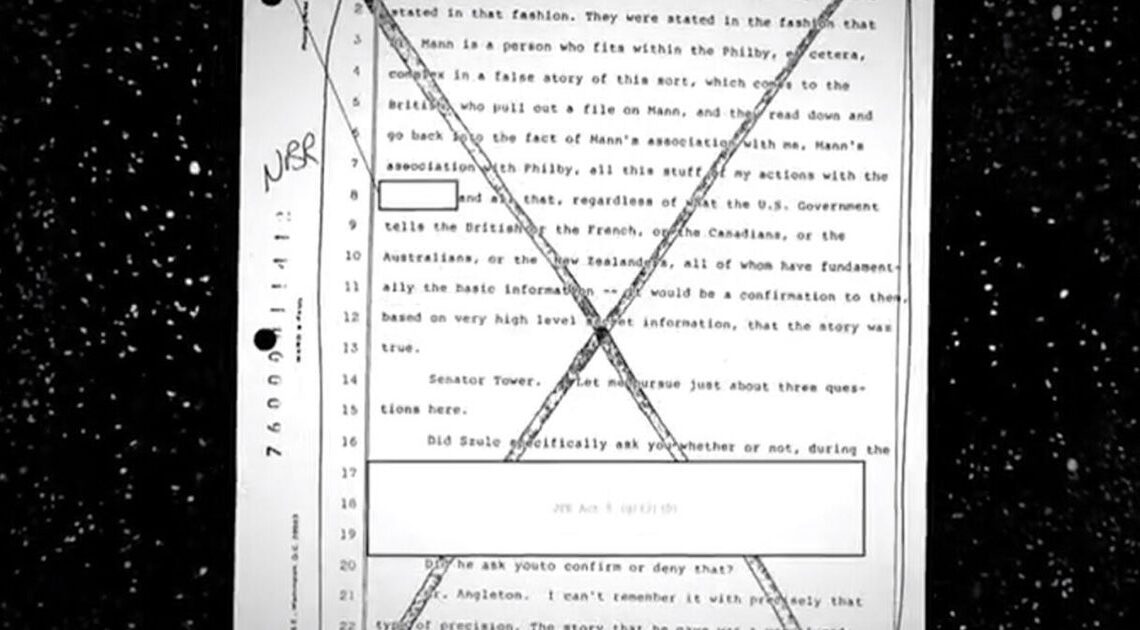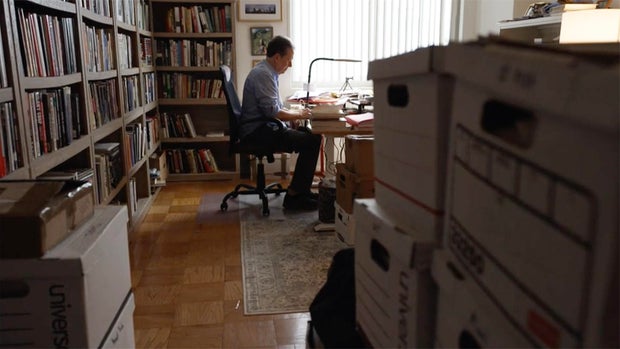
The JFK Files – CBS News
10. August 2025
This past spring, a Congressional task force led by Republican Congresswoman Anna Paulina Luna, of Florida, held hearings on Capitol Hill. Top of the agenda: What newly-released government records reveal about the assassination of President John F. Kennedy. “For over six decades, questions have lingered, shrouded in secrecy and speculation,” said Luna.
Jefferson Morley waited 30 years for this moment, telling the task force, “The CIA destroyed a lot of records related to President Kennedy’s assassination.”
Morley is a researcher and the editor of JFK Facts, a newsletter on Substack dedicated to the JFK assassination. “This event, the President of the United States is shot dead in broad daylight, and no one’s ever brought to justice for the crime? That’s something people still care about,” he said.
Since 1995, the former Washington Post reporter has been on a singular mission: to push the government to release every document related to the death of the 35th president. “Why are they hiding the names of dead men? Because they have something to hide,” Morley said.
He is consumed with the story, even though he remembers little about November 22, 1963. “I was in kindergarten,” he said, “but I remember my family watching the TV all weekend.”
The official version of the shooting came from a 1964 report issued by the Warren Commission that concluded the president was killed by a single bullet fired by 24-year-old former Marine Lee Harvey Oswald … and that Oswald was then killed two days later by Dallas nightclub owner Jack Ruby.
And then, 28 years later, the Oliver Stone film “JFK” was released. That, says historian Mark Updegrove (author of a book about Kennedy’s presidency called “Incomparable Grace”), was “a game changer. This is a major filmmaker with a blockbuster movie at the time offering the notion that there was a much greater conspiracy at work. And I think that fundamentally changed the way we thought about the murder of John F. Kennedy.”
The star-studded movie centered on former New Orleans District Attorney Jim Garrison (played by Kevin Costner), who believed Kennedy’s assassination was part of a wide conspiracy involving the CIA and the mafia.
Garrison: “There are hundreds of documents that could help prove this conspiracy. Why are they being withheld or burned by the government?”
While the film was largely discounted by historians, public pressure led Congress to pass the JFK Records Act in 1992, ordering the release of all government records on the Kennedy assassination.
And that’s when Jefferson Morley, a seasoned reporter, began his own search for answers. “‘Cause it’s great story,” he said. “And because people weren’t attacking it in a disciplined journalistic way, I kind of have the story to myself.”
Morley says he never guessed he’d still be working the story 30 years later. He estimates that four to five million pages of records have now been released.
CBS News
I said, “There’s handwriting you have to get through, there’s redactions you have to go through – that would make me crazy.”
“It does make you crazy,” said Morley. “And you have to be very patient.”
Morley says records show what the CIA kept from the Warren Commission – that the agency had been monitoring Oswald’s behavior for years, tracking his travel, and reading his mail. “We never understood before now how pervasive the surveillance of Oswald was,” Morley said. “This guy was watched for four years. People at the top of the CIA knew what he was doing. They knew about his contacts. They knew about his personal life.
“The official story, that one man alone killed the president for no reason, we know that’s not true. Lee Harvey Oswald was not a lone nut. He was a known quantity to top CIA officers, right before President Kennedy went to Dallas.
“We need an explanation of that story,” Morley said. “And we still don’t have it.”
“Everything will be revealed”
Morley’s patience seemed to be finally paying off, when even more documents were released, following President Donald Trump’s executive order this past January. “A lot of people are waiting for this one for a long … for years. For decades,” he said. “And everything will be revealed.”
And what did those documents reveal? What was clear from the Congressional hearing that followed in April is that there are still no bombshells – nothing to conclusively contradict the official story of the assassination. Morley told the panel, “The attitude of obstruction and obfuscation from the CIA started on November 22, 1963. And that attitude unfortunately has continued to the present day.”
Still, according to Morley, there is more evidence that the CIA buried what it knew about Oswald. But why?
I asked, “If in fact the CIA had been watching Lee Harvey Oswald, and they didn’t realize that he was about to assassinate a president, that’s very embarrassing. Couldn’t that just be the only reason why they hid all that information? Incompetence?”
“There is no CIA official who has ever said that,” said Morley.
Leon Panetta said, “As far as I can see, there’s nothing that changes the conclusion that Oswald acted alone in the assassination.”
It might surprise you to hear that Panetta is as curious as the rest of us to learn what’s in CIA records, since Panetta ran the agency from 2009 through 2011 under President Barack Obama.
I asked, “Wouldn’t you know, as a former director?”
“Not really,” he replied, “because, frankly, when you’re a director of the CIA, you’re pretty much focused on the threats that you have to deal with in the world that you’re in.”
But Panetta says the CIA is often concerned that releasing documents, even after decades, can jeopardize agency assets. “Was there a legitimate concern that they were trying to protect [assets], or was there something more sinister?” Panetta said. “And you know what? We really don’t know the answer to that question.”
I asked, “So, you don’t rule out the idea that there might be something more sinister, you’re just saying there’s no evidence of that?”
“That’s correct,” he replied.
Last April’s hearings brought Jefferson Morley full circle, when he testified next to Oliver Stone (whose film first inspired him). He says he feels optimistic that “we can get to the bottom of this matter.”
Even without any startling disclosures, Morley is confident that, hidden in a government document somewhere, there’s a story waiting to be told. “People are expecting a blinding flash, a smoking gun,” he said. “When you’ve been at this for a long time, you know, I’m not looking for a smoking gun; I’m looking to complete the picture.”
READ AN EXCERPT: “Incomparable Grace: JFK in the Presidency” by Mark K. Updegrove
The presidential historian’s book traces John F. Kennedy’s years in the White House, including his final days leading up to a political fundraising trip in Texas.
For more info:
Story produced by Jay Kernis. Editor: Ed Givnish.
See also:
